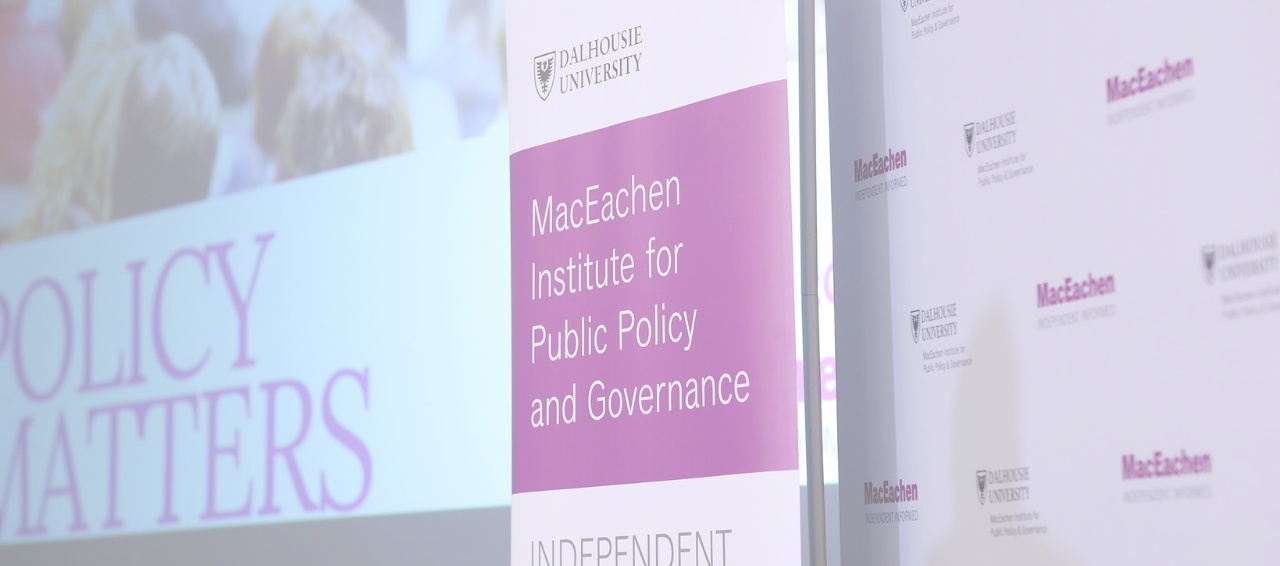First Wave: Atlantic Canada's Chief Medical Officers Discuss Lessons From COVID‑19
This event took place on Thursday October 1, 2020.
Read the briefing notes:
Presented by the MacEachen Institute and the Faculty of Medicine at Dalhousie University.
As we near the end of Wave One of the COVID-19 pandemic in the Atlantic provinces, it is time to take stock and understand what worked in our approach. This is an opportunity to explore what we can change to prepare for Wave Two, which is expected in the fall and winter.
A panel of health leaders will explore the responses to COVID-19 in the Maritimes. How did the Atlantic provinces work together? What did we learn that we want to keep and what should we not continue? How did we work with our provincial, territorial and federal counterparts?
About the Speakers
Dr. Janice Fitzgerald
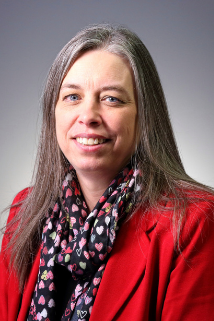 Dr. Fitzgerald was born and raised in Newfoundland where she attended Memorial University, graduating with a BSc in Biology in 1990 and completing Medical School in 1994. Dr. Fitzgerlad then went on to complete a family physician residency through Dalhousie University in 1996.
Dr. Fitzgerald was born and raised in Newfoundland where she attended Memorial University, graduating with a BSc in Biology in 1990 and completing Medical School in 1994. Dr. Fitzgerlad then went on to complete a family physician residency through Dalhousie University in 1996.
After completing her residency in Halifax, Dr. Ftizgerland moved back to Newfoundland and worked as a family physician in Springdale from 1996-98. She then moved to Grand Falls-Windsor to work in Emergency at the Central Newfoundland Regional Health Centre. Family reasons took Dr. Fitzgerald to the St. John’s Metro area in late 2000, where she practiced Family Medicine until 2017. Throughout this time she also worked in long term care facilities.
In 2016, Dr. Fitzgerald completed a Master of Public Health at MUN and accepted a position as Clinical Chief of Long Term Care at the Eastern Regional Health Authority in 2017. She also began working in Public Health at the Department of Health and Community Services. Here, she worked in policy development for Public Health and covered Regional Medical Officer of Health duties. In September 2019, Dr. Fitzgerald was appointed acting Chief Medical Officer of Health for the province.
Dr. Heather Morrison
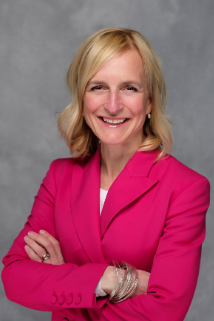 Dr. Heather Morrison was appointed Chief Health Officer for PEI in July 2007. As PEI's first female Rhodes Scholar, she completed both a Master's and Doctorate degree at University of Oxford.
Dr. Heather Morrison was appointed Chief Health Officer for PEI in July 2007. As PEI's first female Rhodes Scholar, she completed both a Master's and Doctorate degree at University of Oxford.
Dr. Morrison returned to Canada to complete her medicine training at Dalhousie University, followed by residency training in Community Medicine at the University of Toronto.
Dr. Morrison has served in a variety of leadership roles including Chair of the Canadian Council of Chief Medical Officers of Health, PEI's representative on the Public Health Network Council of Canada, and PEI's representative on the national Special Advisory Committee on H1N1, COVID-19, Ebola, and on epidemic of opioid overdoses.
Dr. Jennifer Russell
 Dr. Jennifer Russell is the Chief Medical Officer of Health for New Brunswick. She is a graduate of Memorial University of Newfoundland Medical School and completed her residency in Family Medicine at Dalhousie University. She served in the Canadian Forces for 10 years and has worked for Veterans Affairs, Addictions Services, The Noreen Richard Clinic, as well as for Horizon Health as a Hospitalist.
Dr. Jennifer Russell is the Chief Medical Officer of Health for New Brunswick. She is a graduate of Memorial University of Newfoundland Medical School and completed her residency in Family Medicine at Dalhousie University. She served in the Canadian Forces for 10 years and has worked for Veterans Affairs, Addictions Services, The Noreen Richard Clinic, as well as for Horizon Health as a Hospitalist.
She has been with the Office of the Chief Medical Officer of Health for the past six years and brings with her a passion for Prevention and Population Health. She is a member of CCMOH, PHNC, PSUH, and the Executive Management Committee at the NB Department of Health. She has been instrumental in educating stakeholders on substance use issues, hosting both the NB Opioid Summit 2017 and the NB Cannabis Symposium 2018.
Since the initial cases of COVID-19 appeared in Canada she has met several times a week with the other CMOH’s across the country for the Special Advisory Committee meetings. She has been the Public Health spokesperson in the media since March and continues to update the public regularly. She is proud of the work provincially that has been done to flatten the curve and will continue to work with partners to manage COVID-19 with focus on mitigating negative impacts and unintended consequences at the population level and especially vulnerable populations.
Dr. Robert Strang
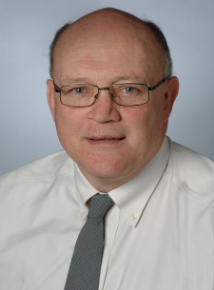 Dr. Robert Strang is the Chief Medical Officer of Health in Nova Scotia appointed in August 2007. He received his medical degree from University of British Columbia and completed Family Practice and Public Health and Preventive Medicine residencies at UBC.
Dr. Robert Strang is the Chief Medical Officer of Health in Nova Scotia appointed in August 2007. He received his medical degree from University of British Columbia and completed Family Practice and Public Health and Preventive Medicine residencies at UBC.
As CMOH, he has provided leadership around the renewal of the public health system in Nova Scotia as well as raising awareness around the importance of creating policies and environments that support better health for Nova Scotian families and communities. Amidst the 2020 COVID-19 pandemic, Dr. Strang has led the province's public health response.
Dr. David Anderson
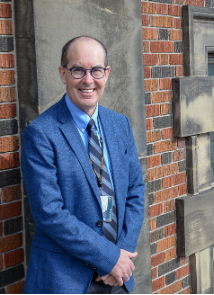 Dr. David Anderson became Dalhousie University’s 13th dean of medicine on July 1, 2015.
Dr. David Anderson became Dalhousie University’s 13th dean of medicine on July 1, 2015.
Dr. Anderson graduated from Dalhousie Medical School in 1983 and completed internal medicine and hematology fellowships at Dalhousie and McMaster University. While studying at McMaster, he also held a research fellowship in thromboembolic diseases. In 1992, Dr. Anderson returned to Nova Scotia where he joined the QEII Health Sciences Centre (now the Nova Scotia Health Authority) as a staff hematologist and Dalhousie Medical School as an assistant professor. Immediately before taking on the deanship, Dr. Anderson was head and district chief of the Dalhousie University/Nova Scotia Health Authority Department of Medicine. Under his watch, the Department of Medicine developed a strategic plan that lead to major new initiatives in clinical care, education and research.
With more than 150 peer-reviewed publications to his name, Dr. Anderson’s contributions to research have led to national and international recognition. Dr. Anderson maintains his clinical practice in hematology at the QEII Health Sciences Centre.
